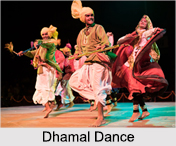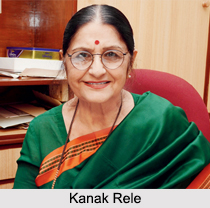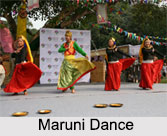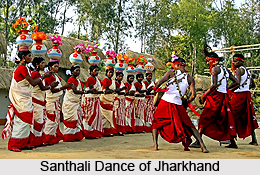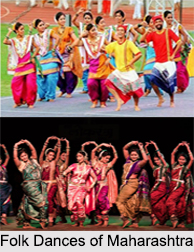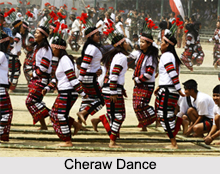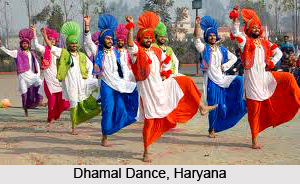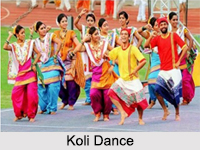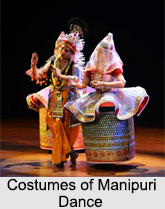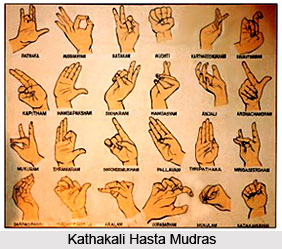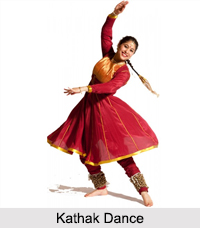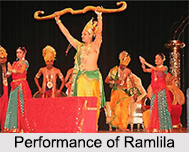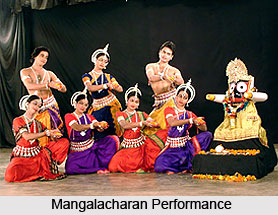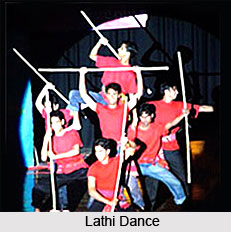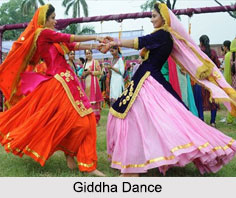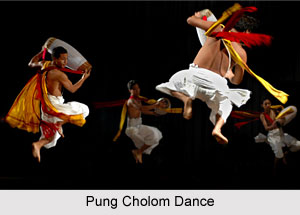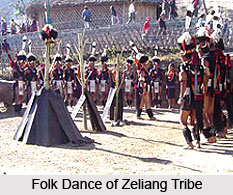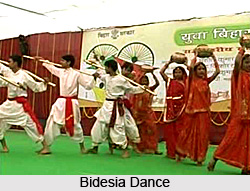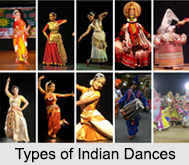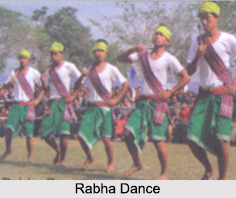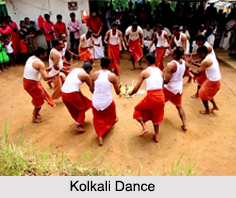 Kolkali Dance is a folk dance practiced by the inhabitants of the region of North Malabar, located in the southern Indian state of Kerala. It is a group dance and is believed to be in existence for more than a millennium. It is performed on various occasions to celebrate joy and spread happiness. Kolkali Dance is now a popular event in Kerala and is considered as the biggest cultural event of Asia.
Kolkali Dance is a folk dance practiced by the inhabitants of the region of North Malabar, located in the southern Indian state of Kerala. It is a group dance and is believed to be in existence for more than a millennium. It is performed on various occasions to celebrate joy and spread happiness. Kolkali Dance is now a popular event in Kerala and is considered as the biggest cultural event of Asia.
In general, Kolkali is performed once in a year after paddy harvest where all the villagers participate without any caste and creed. But now-a-days, Kolkali is also practiced on various tribal festivals and occasions including wedding ceremonies. Sometimes, the dance is performed on a specially constructed wooden stage thus it is also called "Thattinmelkali". The dancers perform this dance by wearing traditional attires.
Etymology of Kolkali
The literal meaning of Kolkali is "dance with sticks" as “Kol†means "stick" and “Kali†means "dance".
Performance of Kolkali Dance
Kolkali Dance has borrowed certain characteristics from Kalaripayattu. The body postures, choreography and foot work are very similar to that of Kalaripayattu. The performance of this rhythmic dance requires great control of steps. The interesting part of Kolkali is that people of all ages can participate in it. The participants perform the dance, by moving about in circular patterns, striking sticks and engaging in small steps, along-with the rhythm. The circle get expanded and contracted as the dance progress further. This dance form reaches its climax, when the music played rises at a certain pitch. Around 12 to 24 dancers move rhythmically in a circle around the ceremonial lamp called "Nilavilakku", tapping their feet along with long wooden sticks held in their hands. The vibrant steps are accompanied by the background vocal music consisting of meaningless syllables followed by folk songs. At the beginning of the dance, it starts slowly but reaches a fast tempo creating an interesting climax. There are diverse choreographic patterns in the dance.
The Muslim, Christians and Harijans also perform this same dance. Muslim Kolkali is similar to the Kolkali practiced by the nearby area; however the only difference is that, only the men folk participate in it.
Musical Instruments of Kolkali Dance
The songs in Kolkali dance are mixed with devotional stories describing regional Gods. The sound of the sticks is the main music of this dance. However, musical instruments like Chenda, Elathalam, Mathalam and Chengala accompany this dance.
